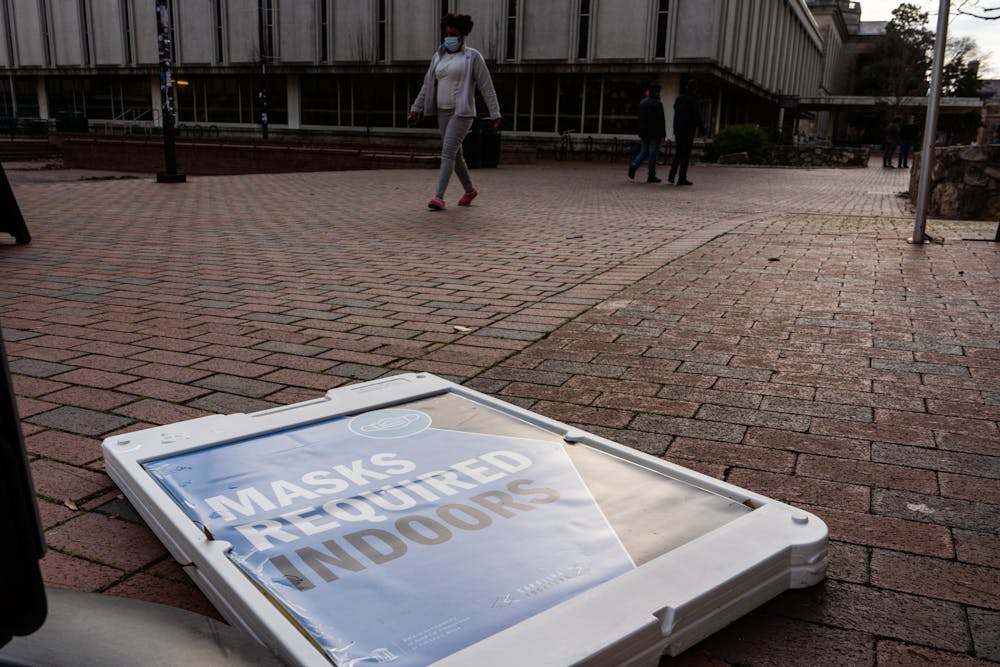In the fall of 2020, between Aug. 14 and Aug. 27, the UNC community received Alert Carolina emergency notifications of 12 COVID-19 clusters across residence halls and Greek life housing.
On Aug. 28, the day after the string of notifications, the University announced it would share cluster information only on the Carolina Together website and UNC social media handles. The announcement cited fewer students remaining on campus after the fall shutdown and a decreasing COVID-19 positivity rate for this new notification system, which no longer included Alert Carolina messages.
"... And members of our community are generally aware, based on our prior notification efforts, of the presence of COVID-19 on our campus," the announcement said.
Since then, there have been additional changes to how UNC reports its COVID-19 data and clusters.
Clusters and other COVID-19 case data are now only displayed on the Carolina Together dashboard, instead of individual notifications — a change that was announced in September. The University has also been communicating safety protocols through campus-wide emails.
Thus far this semester, there have not been COVID-19 clusters identified on campus.
Another change that came in the fall of 2021, following the N.C. Department of Health and Human Services' definition, was referring to a cluster as five or more COVID-19 cases with illness onsets or initial positive results within a 14-day period and plausible epidemiological linkage between cases.
"When the University began the cluster notification process last August, our country was in a very different place with the virus," the Carolina Together Testing website said. "And as we have all adapted over the last year, we have also modified the way we notify our campus of clusters, moving from emergency Alert Carolina notifications to social media notifications last fall."
Under the updated definition, five clusters total were identified last fall at Avery, Ehringhaus, Parker and Hinton James residence halls, and one related to an outdoor event at the Eshelman School of Pharmacy.




